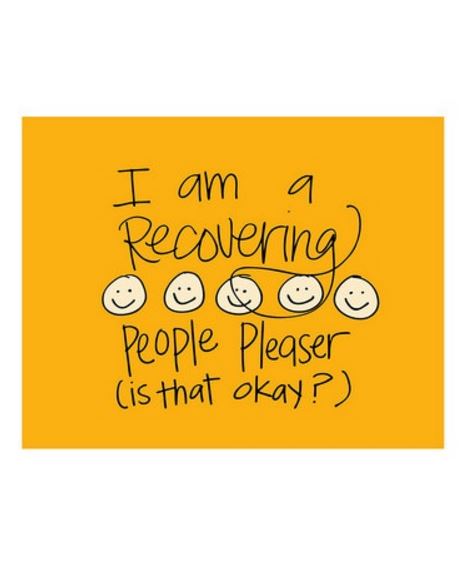While it’s nice to be nice, being too bent on being nice too much can have its drawbacks–especially in recovery. In other words, people-pleasing can have its dangers if you want to stay sober.
Holding open the door for people, tipping the waiter, and observing your manners are all good things. However, if you try to be nice at the expense of your own comfort and self-esteem, then it could be a bad thing. In recovery, being nice–or people-pleasing– can hold you back.

What is people-pleasing?
People-pleasing is a pattern of behavior in which you put more weight on what other people think than on what you really want to do or who you really are. It means you are willing to lie to yourself or to others so that people will like you.
This type of behavior happens on the subconscious level that many people who are people-pleasers are not really aware of what they’re doing. As a result, they are actually limiting their life or not living to their full potential.
You people-please if you regularly do the following:
- You don’t want to speak your mind because you’re afraid to cause trouble or discord.
- You’re afraid your opinions will be met with dislike and hostility.
- You want to be the person people want you to be.
- You are willing to change or settle to make other people happy.
- You find it easier to just go along to what other people like.
- You’re worried that saying “no” to other people will make you be disliked.
- You would rather hide your emotions and opinions so other people will not find you negative.
Why people-pleasing is dangerous
While it’s normal for people to want to be liked by others, too much people-pleasing can cause you to feel alienated. It also opens you up to more dangers, such as the following:
- Not living to your potential
- Becoming stressed out by always trying to please people
- Setting aside your own needs
- Your own plans and aspirations will take a backseat behind those of others
- People may take advantage of you, which may also lead to abuse
- People may begin to trust you less because you will seem like a fraud
- You may take on more things than you can handle
- It can cause you to have anxiety and depression
- It can bring about maladaptive behaviors, addiction being one of them
People-pleasing in recovery
People-pleasing behavior can be a real threat in addiction recovery. One of the major keystones of a successful recovery is the ability to take charge of your own life. If you are relying on other people to give meaning or purpose in your life, or to feel good about your life, then this is unhealthy. It will not help you in your recovery, and may even lead to anxiety and other feelings that could trigger relapse. And even if you don’t relapse, people-pleasing can suck out all the joy and purpose of sober living.
How to avoid people-pleasing in recovery
- Learn to say “no” to things that can threaten your sobriety or self-love
- Don’t rely on others to define you or make you feel good
- Give yourself some credit–don’t be afraid to voice out your opinions
- Know what makes you feel uncomfortable and learn to set boundaries
- Stay away from people who constantly undermine you
- Learn to weed out people who are not your real friends
- Listen to other people’s opinion without having to accept them right away
- Don’t expect that the things you like are the same as what other people like
- Learn to assert for your needs
- Remember: people can’t read your mind
- Don’t be afraid of being different
- Work on a compromise instead of just giving in to their demands
If you want to build a solid foundation built on self-care and sobriety, try to become less of a people pleaser. You will feel better for it.

Recent Comments